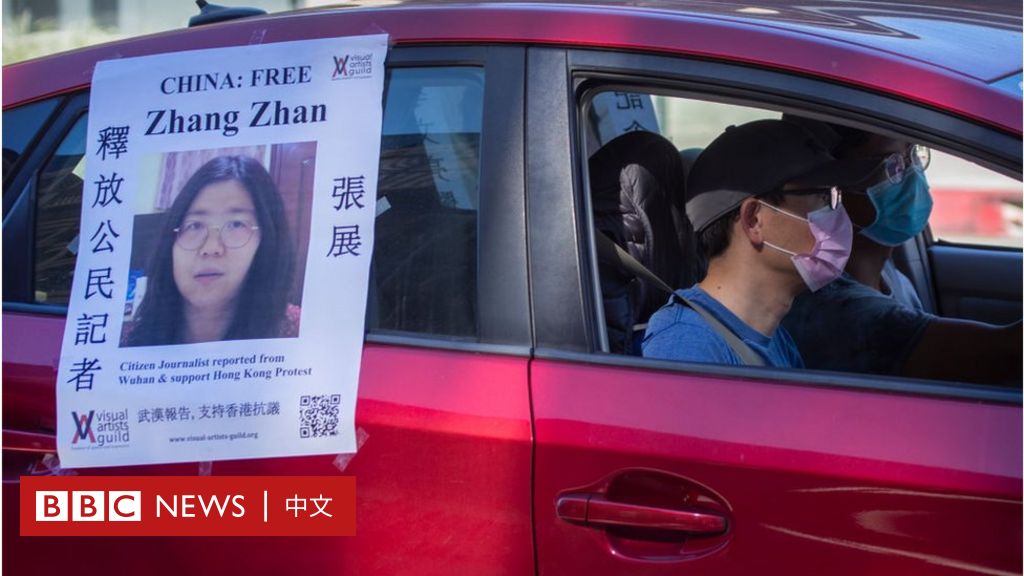image source,Getty Images
The two sessions of China in 2023 will open this weekend. Zhu Zhengfu, a deputy to the National People’s Congress of China and a Guangdong lawyer, once again proposed to abolish the crime of picking quarrels and provoking troubles, which has attracted attention. The crime of picking quarrels and provoking trouble has existed in China for decades and has been criticized for being seen as a pocket crime to punish dissent.
called many times
According to Chinese media reports, Zhu Zhengfu, deputy to the National People’s Congress, once again called for the abolition of the crime of picking quarrels and provoking troubles, saying that the existence of this crime is conducive to punishing behaviors that endanger social order to a certain extent. However, the various drawbacks of this crime are always eroding the foundation of the law, and its ambiguity will not only affect the people’s reasonable expectations of rights and obligations, but also lead to selective law enforcement by law enforcement agencies.
In an interview with Caixin, he said, “Especially in recent years, a large number of Internet speakers have been convicted of this crime, which has seriously eroded the boundaries of freedom of speech; and the implementation standards in various places are not uniform, and the characterization seriously lacks seriousness. It harms the legitimate interests of the people and undermines the people’s respect and belief in the law.”
Zhu Zhengfu was elected as a member of the Chinese People’s Political Consultative Conference twice from 2008 to 2022, during which time he has been calling for the abolition of the crime. He was elected as a representative of the 14th National People’s Congress of China in Guangdong earlier this year.
“Sichuan Observation” once collected netizens’ attitudes towards the crime on its Weibo, and more than 70% of netizens did not approve of the cancellation. Currently, the Weibo survey is no longer available.
The files kept on the Internet show that netizens who support the abolition of the crime think that they will not cause trouble, so they do not approve of the abolition.
Weibo netizen “A Zhai also has to work hard” said: “Because I am very likely to be called (becoming) the target of being provoked. After all, I will not provoke others. I must have something to protect myself.”
But there are also netizens who hold different views. Netizen “There is a bird on a bull’s back” said: “They actually think they won’t cause trouble, so they won’t pick trouble.”
But ifeng.com conducted a survey on whether the “crime of picking quarrels and provoking trouble” should be abolished. As of 18:00 on March 2, nearly 80% supported the abolition of the crime.
The crime of picking quarrels and provoking trouble and typical cases
Article 293 of the Chinese Criminal Law stipulates that anyone who commits any of the following acts of picking quarrels and provoking troubles and disrupting social order shall be sentenced to fixed-term imprisonment of not more than five years, criminal detention or public surveillance: including beating others at will, if the circumstances are serious; ; Forcibly taking or arbitrarily destroying or occupying public and private property, the circumstances are serious; making disturbances in public places, causing serious disorder in public places.
The crime of picking quarrels and provoking troubles is often criticized as a pocket crime during the execution process. It has always been considered by the outside world as a tool used by the Chinese government to suppress dissidents. Many human rights defenders and lawyers have been convicted of this crime.
In 2015, Pu Zhiqiang, a Chinese human rights lawyer, was found guilty of “inciting ethnic hatred” and “picking quarrels and provoking troubles”. He was sentenced to three years in prison and suspended for three years.
image source,Getty Images
Pu Zhiqiang
His microblogs, which are deemed guilty of “picking quarrels and provoking troubles,” include criticisms of Shen Jilan, China’s most re-elected deputy to the National People’s Congress, and Mao Xinyu, the grandson of CCP leader Mao Zedong.
In 2020, Chinese citizen journalist Zhang Zhan was sentenced to four years in prison for “picking quarrels and provoking trouble”. According to the indictment circulated on the Internet and confirmed by Zhang Zhan’s lawyer, she was criminally detained by the Pudong Branch of the Shanghai Municipal Public Security Bureau on May 15 on suspicion of “picking quarrels and provoking trouble”.
The procuratorate stated in the indictment that Zhang Zhan entered Wuhan on February 3 and “published a large amount of false information” in text and video through WeChat, Twitter, YouTube and other online media, and accepted interviews from foreign media.
“An excuse for law enforcement officers to punish others arbitrarily”
The crime of picking quarrels and provoking trouble stems from the crime of hooliganism. In 1997, China revised its criminal law, abolishing the crime of hooliganism, and dismantling it into crimes of compulsory indecency, insulting women, molesting children, crimes of gathering a crowd to fight, and crimes of picking quarrels and provoking trouble. However, the crime of picking quarrels and provoking troubles continues the overly broad characteristics of the “crime of hooliganism”.
Yu Ping, a doctor of law and former China director of the Rule of Law Project of the American Bar Association, pointed out to BBC Chinese that the definition of picking quarrels and provoking troubles is too broad and not clear enough, and should be abolished.
“When law enforcement wants to punish a person, they use this method of picking quarrels and provoking troubles. The methods and scope of picking quarrels and provoking troubles are highly consistent with those used in hooliganism in the past. The crime of picking quarrels and provoking troubles has become a substitute for hooliganism,” Yu Ping said.
Wuhan epidemic recorder Zhang Zhan: “I can’t retreat, because this country cannot retreat”
Yu Ping also pointed out that Zhu Zhengfu’s proposal to cancel it was very timely and targeted, because Chinese law enforcement agencies may use this crime to target people who refuse to obey the government’s management. “If this crime continues to exist, it will seriously infringe on the freedom of citizens. Picking quarrels and provoking troubles will involve citizens’ freedom of speech and freedom of demonstration and assembly. This is in violation of the Constitution.”
Yu Ping said that this crime puts everyone in danger, and anyone may be defined by the government as picking quarrels and provoking trouble. Trouble caught you.”
He also pointed out that in the criminal law, beatings include the crime of harming people and disrupting public order. There is no need to add the crime of picking quarrels and provoking trouble, it just gives law enforcement an excuse to arbitrarily punish others.


